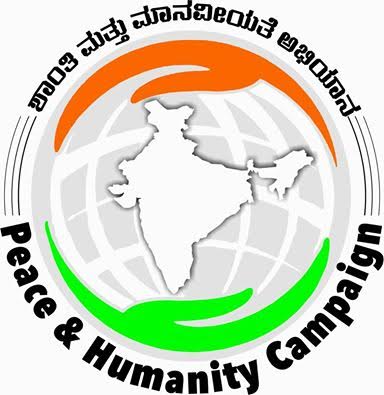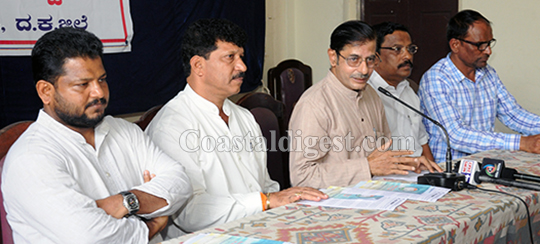Mangaluru, Aug 19: The Jamaat-e-Islami Hind will be holding a nation-wide campaign on Peace and Humanity' between August 21 and September 4 to address the onslaught of communal fascism in India.
Dakshina Kannada district unit of the JIH too has planned a series of programmes as part of this campaign. The members of the reception committee of the campaign, comprising of prominent persons of the society, on Friday through a press conference urged the people of the district to join hands together to strengthen communal harmony in the region.
Addressing media persons Dr Satyanarayana Mallipatna, an academician and honorary president of the district level reception committee, said that the Dakshina Kanand was passing through a period of turmoil.
“Innocents are being attacked and killed for political reasons. This development is damaging the reputation of the coastal district,” he lamented and called upon the people to establish peace in the society.
 “Indian society is pluralistic in nature. The diversity that exists in India in terms of religion, culture and language is highly unique. People of our district should realise this and uphold unity and brotherhood,” he said.
“Indian society is pluralistic in nature. The diversity that exists in India in terms of religion, culture and language is highly unique. People of our district should realise this and uphold unity and brotherhood,” he said.
Stating that the main target of the campaign was the youth of the country, he said that the new generation should be standard-bearers of brotherhood, peace, friendship and mutual support and cooperation.
He said that as part of the campaign taluk level goodwill forums will be formed. Besides following programmes will be conducted in the district:
1. Individual visit and distribution of folders and broachers at a wide range. 2. Speech competition for high school students. 3. Essay competition for college students. 4. Street play. 5. Competition of making documentary film. 6. Rural level programmes in all over district. 7. Childrens rally. 8. Multi language kavigoshti. 9. Distribution of two sadhbhavana award at district level. 10. On august 30 symposium at town hall, Mangaluru.
Committee president Prasad Rai Kallimar, vice president Sanjeeva Poojary, general secretary Muhammad Kunhi, and Umar UH were present at the press meet.
Meanwhile, release issued by the JIH stated that the goal of the campaign is to bring about some firm and perceptible changes in society.
“While the objective of this campaign is also to appeal and rouse the conscience of the country, but beyond that our goal is to ensure the establishment of a string of institutions right from the community level to the local level and the promotion of necessary practices to help consistently counter this menace of communal hatred,” it said.






Comments
Mr.Viren you can call Muslims as Kafirs for not believing in Hindu gods.Kafir means one who denies.Must understand with context.
Viren ...kaafir is not a bad word..ha ha....learn it well yaar....still you dont know anything about IslAm....if you want to know the meaning.....ask in a real leading manner...we will teach you....
First ban saffron groups and viren's brothers in dk and see.....then all will be well..
A timely campaign. All muslim oranisations of coastal Karnataka should join hands with JIH in this cause.
How can an organisation like Jamat-E-Islami, which calls those who go to temples as \Kaafirs\" promote peace and humanity in Dakshina Kannada?"
Add new comment